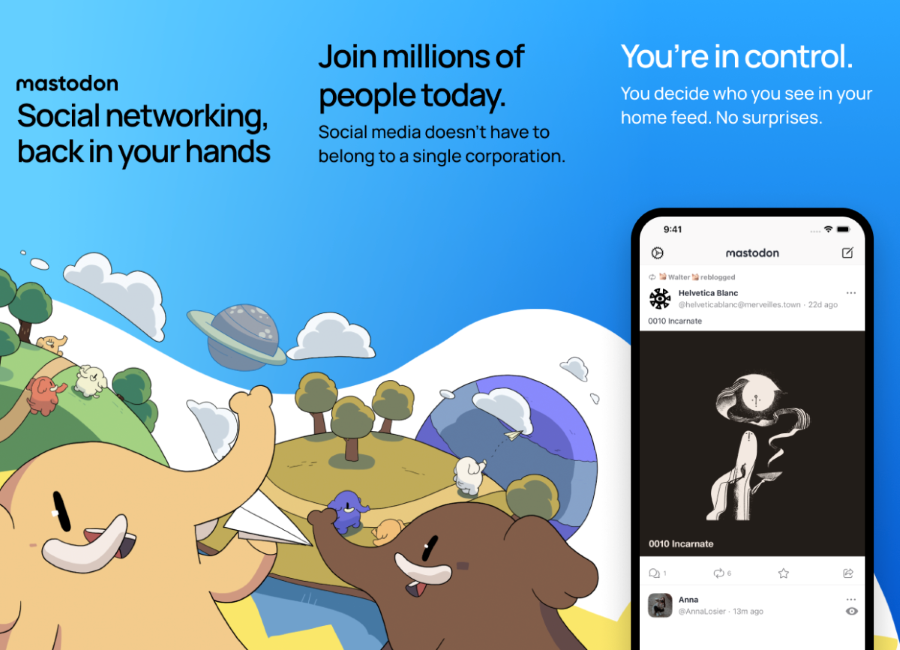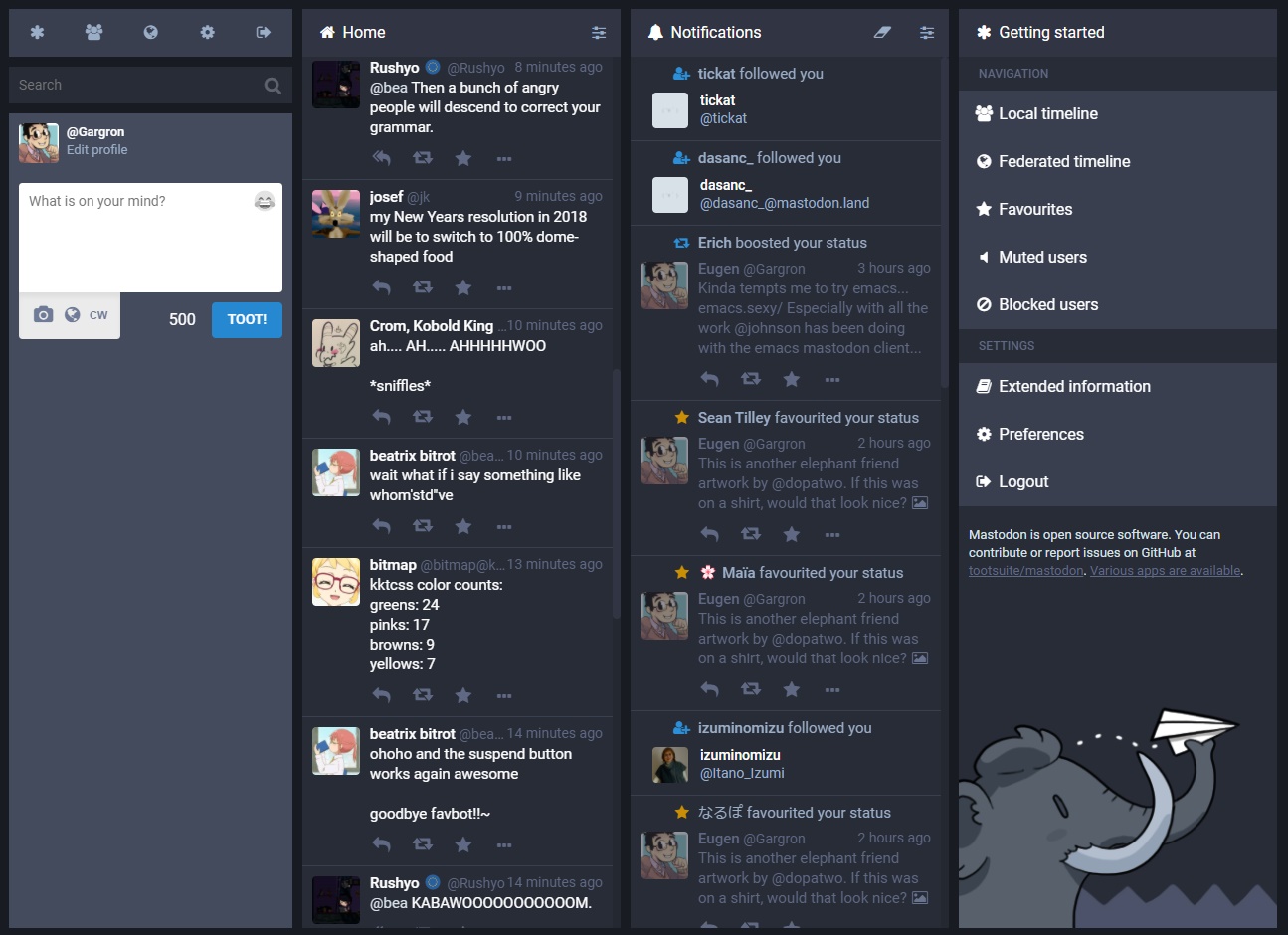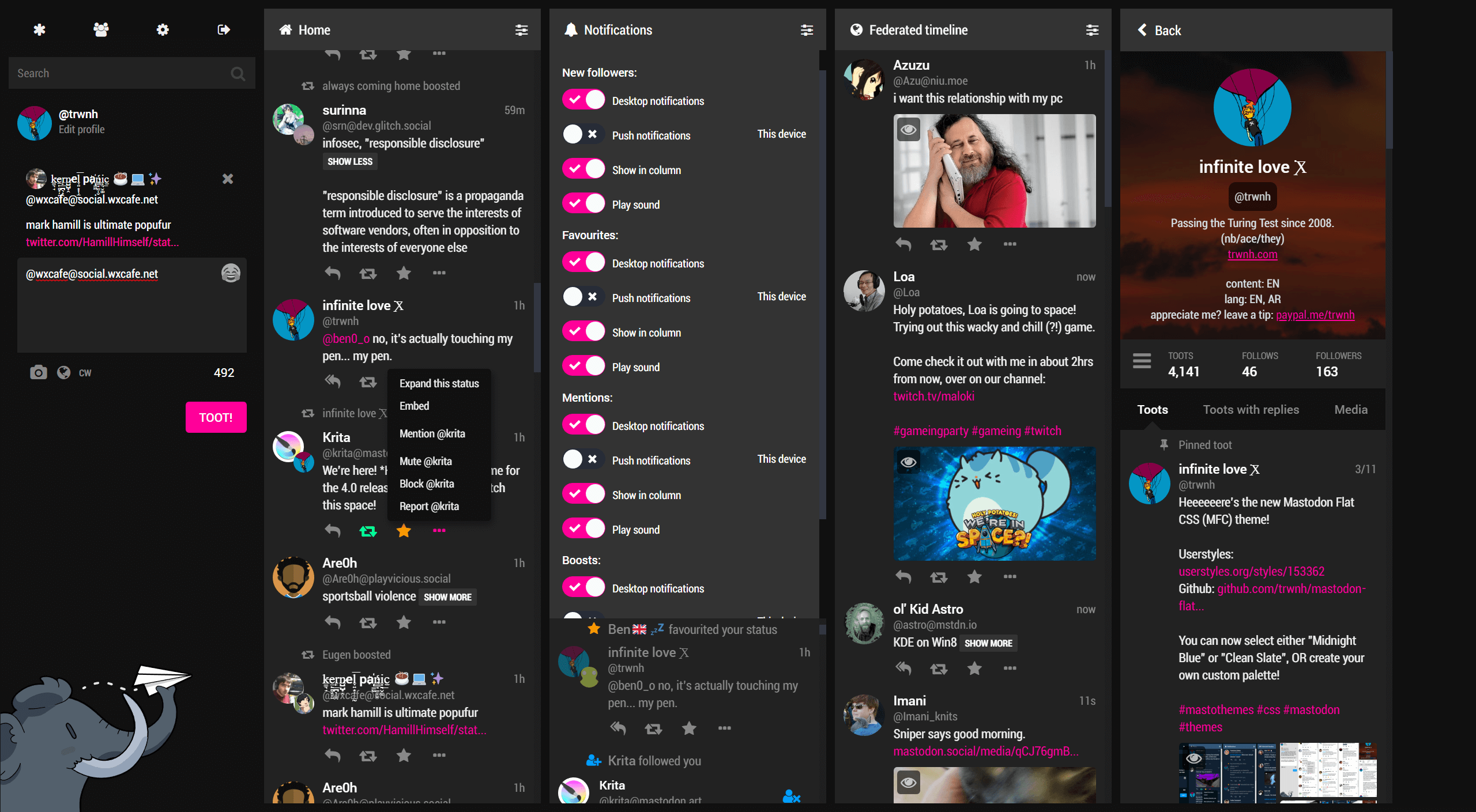Mastodon
Revolutionizing Social Media with Decentralized Freedom on Mastodon

Introduction
Welcome to our overview of Mastodon, an open-source, decentralized social networking platform that empowers users with control over their online presence. In this article, we will explore what Mastodon is, its key features, who created it, the license it uses, and how it can transform your social networking experience. This guide aims to inform and inspire users to adopt Mastodon for their social media needs.

What is Mastodon?
Mastodon is an open-source, decentralized social networking platform that allows users to create and join communities with microblogging features. It operates on a federated network, meaning users can interact across different servers (instances) while maintaining control over their content and data. Mastodon offers a user-friendly interface similar to traditional social media platforms but with enhanced privacy and community-focused features. Mastodon was created in 2016 as a response to the growing concerns over data privacy and centralized control in mainstream social media platforms. Since its inception, Mastodon has grown through contributions from a global community of developers and enthusiasts, continuously evolving to meet the needs of its users.
Mastodon is released under the GNU Affero General Public License (AGPLv3), which allows users to freely use, modify, and distribute the software. This license promotes transparency and collaboration, ensuring that any modifications to the source code are shared with the community. The open-source nature of Mastodon provides users with complete control over their social networking experience, with the source code available on GitHub.
Key Features of Mastodon
- Decentralized Network: Mastodon operates on a federated network, allowing users to join different instances and interact across them. This decentralization reduces the risk of censorship and enhances content resilience.
- User-Friendly Interface: Mastodon offers an intuitive and familiar interface, making it easy for users to transition from traditional social media platforms.
- Enhanced Privacy Controls: Mastodon provides robust privacy settings, enabling users to control who sees their posts and how their data is used.
- Community Engagement: Create and join communities based on shared interests, fostering meaningful interactions and engagement.
- Customizable Profiles: Personalize your profile with custom avatars, headers, and bio information to reflect your identity.
- Rich Media Support: Mastodon supports various media types, including images, videos, and audio, allowing for diverse content sharing.
- Moderation Tools: Instance administrators have access to comprehensive moderation tools to maintain a safe and respectful community environment.

Why Choose Mastodon for Social Networking?
Choosing Mastodon offers several benefits:
- Control Over Data: Maintain ownership and control over your data with a decentralized platform, ensuring privacy and security.
- Community Focus: Join or create communities that align with your interests, fostering genuine connections and engagement.
- Customization: Tailor your social networking experience with customizable profiles and privacy settings.
- Open Source: Benefit from the transparency and innovation of an open-source project with a strong community backing.
- Resilience Against Censorship: The federated nature of Mastodon reduces the risk of censorship, providing a platform for free expression.

Conclusion
Mastodon is a powerful and flexible social networking platform that offers a decentralized, privacy-focused alternative to traditional social media. Its robust features and community-driven development make it an excellent choice for users seeking control over their online presence. Start using Mastodon today and explore the freedom of decentralized social networking.